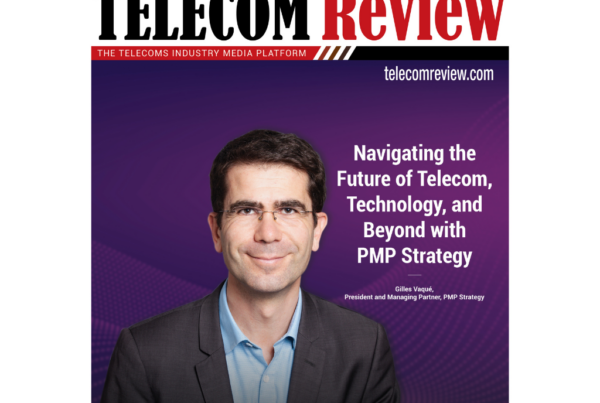The presidential election confronts different conceptions of the organization of transport. After reading the flyers presented by the teams of the main candidates, we present here their vision on transport. Before going into more detail in the candidates’ proposals, note that the quantity of proposals associated with the theme of transport varies greatly depending on the candidate.
For some (Benoît Hamon and Marine Le Pen), their governance proposals appear reduced, without much further explanation or context. These are undoubtedly more detailed in their respective program books. In the case of the candidate of the National Front, the proposals devoted to transport are in the last of her program of promises (proposals 138, 139 and 144 out of 144), without much more details (which we will detail below).
At François Fillon and Emmanuel Macron, the proposals associated with the transport and mobility themes are detailed in a dedicated page of their website, again with rather variable lengths: Emmanuel Macron detailing the context of his proposals on several pages, while the site The former prime minister’s campaign stretches out the proposals in the form of concise bullet points .
The most comprehensive argument is produced by Jean-Luc Mélenchon’s team, developed in a document of around twenty pages, which contains both contextualizations and detailed proposals for transport policies.
Marine Le Pen’s transport policy: A (fuzzy?) Continuation of public service
As we have already written, the proposals of the candidate of the National Front for the field of transport are particularly succinct. We thus find an enhancement and equal access to all public services (for transport among others, but without further details, proposal 138).
The continuation of the public service *, the conditions of which are not further specified, also implies the nationalization of the motorways (privatized in 2006 following the decision of Dominique de Villepin) (Prop. 144), the defense of the status of public company of the SNCF (prop. 138) as well as the “refusal” of “the liberalization of rail desired by the European Union”.
Housing, land use planning and transport policies would be decided by a single ministry, thus concentrating all of these responsibilities on a single portfolio, which will also be responsible for “rebalancing city policies. towards desertified and rural areas ”(without further details) (prop. 139).
Unlike most of the other candidates, frontist transport policy is never associated with ecology within the few lines devoted to it. There is also (unlike all the other programs) no notion of extension or development of the rail network in France. The themes developed are therefore very close to those of Jean-Luc Mélenchon. However, the latter’s proposals are much more detailed, and devote a large part to ecology.
Transport in France according to Hamon: towards a tightening of the rail network?
Among the other candidates who wrote only a few short lines in the field of transport, Benoît Hamon proposes an ecological policy for the development of rail networks. Thus, one finds among its proposals a consolidation of the network (without further details), an enhancement of the transport of goods by freight, as well as an increase in investment for rail and so-called “clean” transport, (without encryption).
There is also a proposal for closer anti-liberal themes: opposition to the 4th railway package of rail liberalization (similar to the opposition of Mrs. Le Pen “to rail liberalization,” but more precise in institutional terms), without further details on this subject, as well as the safeguard of “all the stops on the balance lines of the territory”.
If we can consider that the program is undoubtedly more precise than that of Ms. Le Pen on the subject, while also including some ideas on ecology (strong theme of the campaign of Benoît Hamon), the absence of development or contextualization impairs understanding of the candidate’s program choices. In comparison with the programs of Macron and Mélenchon, for example, the absence of real “strong measures” on the subject does not risk giving consistency to the project described. This lack of attention to the subject is all the more damaging as a strong emphasis is placed on ecological and energy issues, which are not, however, associated with those in the field of mobility.
François Fillon, or a transport development project that goes against the tide of the right?
François Fillon’s project is for its part much more “surprising” given its positions favorable to the establishment of sustained budgetary rigor and consequent economic liberalism. Indeed, the candidate proposes an upgrade of transport and an improvement of the service in rural areas (in line with the improvement of the rail network advocated by all the candidates, with the exception of Marine Le Pen) by public investments. This investment is also associated with the preservation of “transport payments” as a source of funding.
François Fillon’s transport program also includes a non-negligible part of ecological themes: valuation of freight for the transport of goods and development of electric and autonomous cars (without further details given on these subjects). The candidate’s program does not however specify the means for the “development of autonomous and electric cars” (Public investment? Increased tax credit for innovative companies within the framework of the CIR?)
The choice to enhance the rail network is however consistent with the rural Fillonist electorate, living in peripheral areas where rail service is not sufficient, and the choices of economics of “high tech” development also correspond to the continuation of the image of a candidate with a great attraction for technology. However, here again, we note that this part of the program is neither quantified nor detailed, and that it appears all the more contradictory as it comes into conflict with the desire for “State disengagement” advocated by the government. candidate.
Emmanuel Macron, or the promotion of multimodality?
The candidate’s program of “En Marche! »Is of all the candidates one of the most provided and the most original, in terms of proposal as of pedagogy. The candidate thus wishes to promote “modernity”, “justice” and “the environment”. To do this, it proposes to increase the number of infrastructures (park-and-ride facilities, stations, etc.) in order to increase intermodality between two destinations, whatever they may be, and therefore to offer alternatives to the use of the car. This approach is also part of the development of mobility aids, allowing “the return of jobs” by “reducing transport costs”. This will be done through an “emergency investment plan” in the renovation of rails and roads. Note also that like the other candidates,Emmanuel Macron proposes to value the freight.
In addition to this concept of intermodality, there is also the promotion of alternative or ecological means of transport, by integrating dedicated lanes for VTCs, buses and carpooling, as well as toll prices adapted to the latter. This is an originality of Macron’s program compared to the other candidates: to propose a new land use planning and transport infrastructure (although this proposal is not quantified). Finally, it should be noted that the candidate wishes to improve the digitalization of means of transport (trains, metro, highways) in order to increase speed and reliability.
The last part of the candidate’s program is based on ecological themes: conversion of the French car fleet with the help of an exchange bonus for the purchase of greener cars, implementation of a more sustained diesel tax system and the establishment of anti-pollution standards at European level.
The program of the candidate of En Marche is therefore particularly worked on compared to the programs of the other candidates, since it tries to combine both ecological themes, digital innovation, improvement and reorganization of infrastructures around the “Smart city”. A program thus showing itself as being resolutely social-liberal on the theme of transport.
Jean-Luc Mélenchon, or Keynesianism applied to transport
If Mélenchon’s program is particularly detailed on transport themes (a booklet of about twenty pages), it is because it is notably part of a Keynesian logic [1] of relaunching by public expenditure (financed by a loan of 100 billion euros from the European Central Bank), which tends to be an ideological counterpoint to liberal economic theory and austerity. The “France Insoumise” program is indeed counting on significant public investment intended to revive the economy, renovate infrastructure, but also launch an ecological transition. In this context, it seems logical that the 20-page booklet devoted to transport therefore gives pride of place to public investment.
One of the first parts of this program therefore consists in the renovation of the transport system in France, as well as a “reconquest” of the public service on the privatizations. We thus find, as in many other presidential programs, a renovation of the rail system, a valuation of freight as well as a tightening of the rail network. This renovation of the rail system will be accompanied by a conquest of public services, where the candidate proposes a nationalization of highways, a development of public coach services in rural areas, free urban public transport and an increase in river transport.
Beyond these proposals for the reconquest of the State, the candidate’s program includes a very large number of ecological measures in the field of transport. A significant public investment will thus be found in non-oil transport (without further details). This investment will also be accompanied by a disincentive to use petroleum means of transport: the weight of the carbon tax will be increased, and a kilometer tax at the borders will be put in place for large carriers. The candidate’s objective is ultimately to reduce the automobile share in the transport used by the French, but also in the modes of freight transport.
Like the candidate Emmanuel Macron, the candidate of France Insoumise proposes a new mode of organization of infrastructure (and especially logistics): The program thus mentions a break in the classic logistics chain of goods transport, by proposing for example a non-polluting last mile system. If this last proposal may seem daring (and may be impractical?) The candidate hopes – implicitly – that these proposals will elicit a strong participation of civil society, from the various programs of the “major” candidates on transport, we can therefore see that some are not very detailed (Hamon, Fillon, Le Pen), even sometimes rather antagonistic with the other measures of the candidates’ programs. For the other two candidates Macron and Mélenchon, on the other hand,the measures are particularly detailed, but at the same time, ideologically antagonistic. Faced with Macron’s social-liberalism and the development of digital technology and uberization, there is Mélenchon’s Keynesian social-democratic program, with numerous public investments and a strong ecology component. If the first candidates do not allow the development of a very innovative approach or vision of these themes, we will therefore find for the last two candidates very different development approaches, including on ecological themes (on the one hand, a proposal for a law called “vague” and taxation, on the other, very high taxation and public investment).Faced with Macron’s social-liberalism and the development of digital technology and uberization, there is Mélenchon’s Keynesian social-democratic program, with numerous public investments and a strong ecology component. If the first candidates do not allow the development of a very innovative approach or vision of these themes, we will therefore find for the last two candidates very different development approaches, including on ecological themes (on the one hand, a proposal for a law called “vague” and taxation, on the other, very high taxation and public investment).Faced with Macron’s social-liberalism and the development of digital technology and uberization, there is Mélenchon’s Keynesian social-democratic program, with numerous public investments and a strong ecology component. If the first candidates do not allow the development of a very innovative approach or vision of these themes, we will therefore find for the last two candidates very different development approaches, including on ecological themes (on the one hand, a proposal for a law called “vague” and taxation, on the other, very high taxation and public investment).If the first candidates do not allow the development of a very innovative approach or vision of these themes, we will therefore find for the last two candidates very different development approaches, including on ecological themes (on the one hand, a proposal for a law called “vague” and taxation, on the other, very high taxation and public investment).If the first candidates do not allow the development of a very innovative approach or vision of these themes, we will therefore find for the last two candidates very different development approaches, including on ecological themes (on the one hand, a proposal for a law called “vague” and taxation, on the other, very high taxation and public investment).
A few days before the poll, if the theme of transport was not at the heart of the programs, some major candidates are formulating surprisingly rich proposals, to the point of concretely proposing radically different logistical organizations for society.
Antoine Martin
[1] Keynesian revival: Considering State interventionism as the main vector of growth
Bibliography:
Macron: https://en-marche.fr/emmanuel-macron/le-programme/mobilite
Hamon: https://www.benoithamon2017.fr/wp-content/uploads/2017/03/projet-web1.pdf (page 25)
Fillon: https://www.fillon2017.fr/wp-content/uploads/2017/03/projet_environnement_energie_transport.pdf
Le Pen: https://www.marine2017.fr/programme/ (proposals 138, 139 and 144) out of 144.




